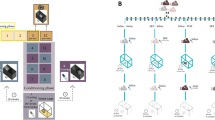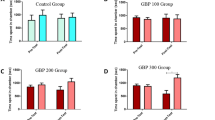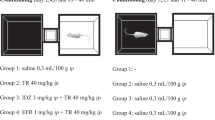Abstract
Gamma-hydroxybutyric acid (GHB), a putative neurotransmitter or neuromodulator found in the mammalian brain, has been successfully used in clinical practice to alleviate both alcohol and opiate withdrawal symptoms. In the present study we used a conditioned place preference (CPP) paradigm to investigate whether GHB possesses rewarding properties in rats. In order to exclude possible artifacts due to experimental design, we evaluated the possibility of a shift in preference when rats are conditioned either on their non-preferred side or on a randomly assigned side of conditioning. In both experiments GHB was seen to induce CPP. Although to date the physiological role of this compound still remains unclear, there is no doubt that GHB, further to its proven effect on alcohol and opiates, possesses rewarding properties of its own. The abuse liability afforded by this drug suggests the use of particular caution in handling GHB as a clinically useful drug.
Similar content being viewed by others
Author information
Authors and Affiliations
Additional information
Received: 27 November 1995 /Final version: 10 February 1997
Rights and permissions
About this article
Cite this article
Martellotta, M., Fattore, L., Cossu, G. et al. Rewarding properties of gamma-hydroxybutyric acid: an evaluation through place preference paradigm. Psychopharmacology 132, 1–5 (1997). https://doi.org/10.1007/s002130050312
Issue Date:
DOI: https://doi.org/10.1007/s002130050312




